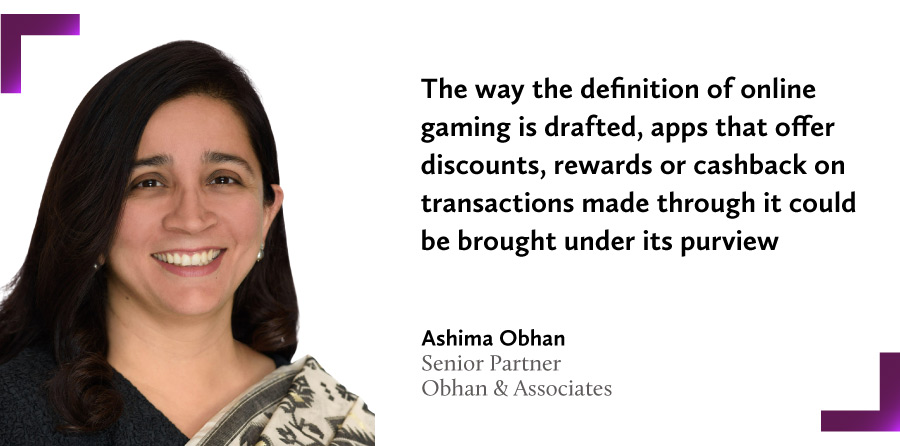While curbs and regulation of the burgeoning online gaming industry are necessary, has the government gone too far? Freny Patel reports.
A deep dive into amendments to India’s 2021 information technology rules and recently proposed changes to the tax regime for online gaming throws up significant challenges and ambiguities. There is a call for greater clarity in the wake of an exponential growth in the number of online gaming users in India, brought about by the covid-19 pandemic and subsequent government-imposed lockdowns.
The compound annual growth rate of revenue from India’s gaming market in FY2021-2022 increased by 27%, from USD2 billion to USD$2.6 billion. It is projected to touch USD8.6 billion by FY2026-2027, according to gaming and interactive media venture fund, Lumikai.
Against China’s 8% growth rate and the US at 10%, India’s gaming revenue grew 38% between 2017 and 2020.
Gaming under IT rules
The Ministry of Electronics and Information Technology (MeitY) has been identified as the nodal agency to oversee the growing online gaming industry. Earlier this year, it proposed amendments to the Information Technology (Intermediary Guidelines and Digital Media Ethics Code) Rules, with provisions against betting and wagering. It proposed a self-regulatory mechanism aimed at regulating online gaming content.
Effectively, online gaming has been brought under IT rules that were initially issued for social media intermediaries and streaming platforms. The gaming industry has welcomed the proposed guidelines on self-regulation, and the proposed light-touch regulatory framework. Prashant Phillips, a Delhi-based partner at Lakshmikumaran & Sridharan, says prominent participation from self-regulatory bodies may make business easier, provide much-needed clarity and help in the growth of the sunrise gaming industry in India.
Roland Landers, chief executive of the All India Gaming Federation, also welcomed the amendments. He says a uniform central regulation for online skill gaming has been a long-awaited industry demand.
According to Ashima Obhan, a New Delhi-based senior partner at Obhan & Associates, the draft amendment rules bring certainty, which is especially important for investor confidence and potential investment.

- Nagaland, Meghalaya and Sikkim states provide a licensing mechanism for online games.
- Other states like Andhra Pradesh, Odisha and Telangana prohibit online games of chance and skill involving money.
- The southern states of Karnataka, Kerala and Tamil Nadu have passed laws prohibiting online games of skill and chance, but these have been challenged in various high courts and held to be unconstitutional.
Since online gaming is governed by different laws, there is a lack of clarity in regulations, explains Bagmisikha Puhan, a New Delhi-based associate partner of TMT Law Practice.
Online gaming falls under IT laws because the games are played on the internet. However, due to advertisements and endorsements, online gaming is also governed by consumer protection laws, says Puhan.
You must be a
subscribersubscribersubscribersubscriber
to read this content, please
subscribesubscribesubscribesubscribe
today.
For group subscribers, please click here to access.
Interested in group subscription? Please contact us.



























